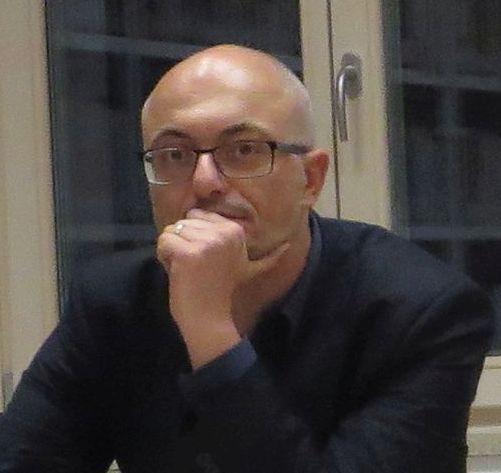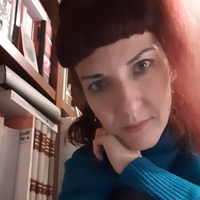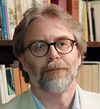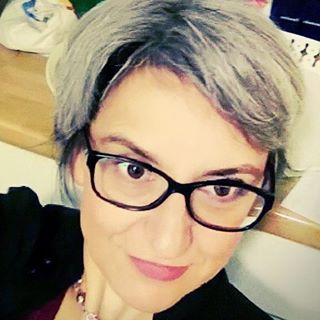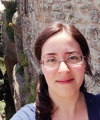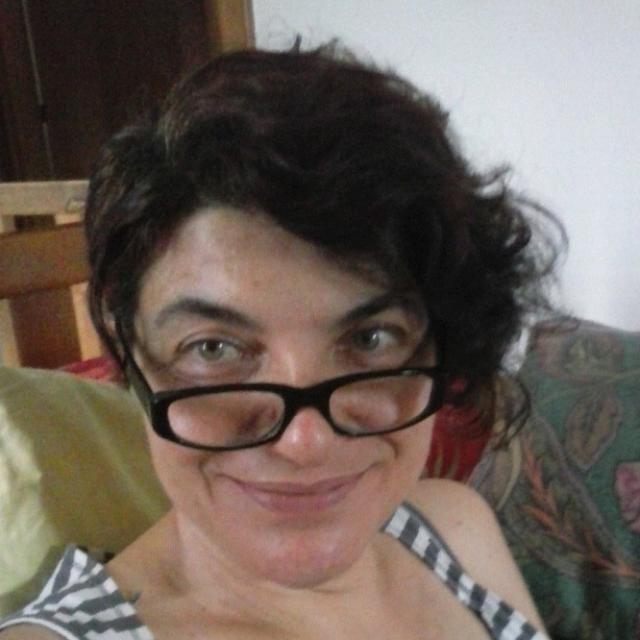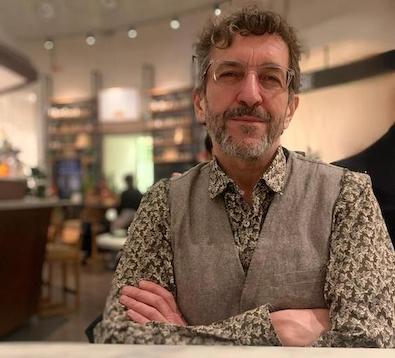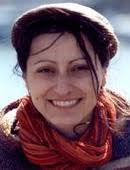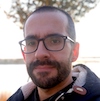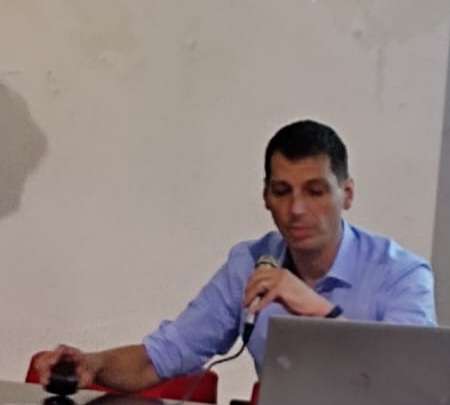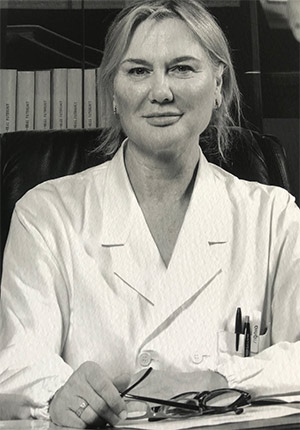Studying at the University of Verona
Here you can find information on the organisational aspects of the Programme, lecture timetables, learning activities and useful contact details for your time at the University, from enrolment to graduation.
Academic calendar
The academic calendar shows the deadlines and scheduled events that are relevant to students, teaching and technical-administrative staff of the University. Public holidays and University closures are also indicated. The academic year normally begins on 1 October each year and ends on 30 September of the following year.
Course calendar
The Academic Calendar sets out the degree programme lecture and exam timetables, as well as the relevant university closure dates..
| Period | From | To |
|---|---|---|
| CuCi IA | Sep 21, 2020 | Oct 31, 2020 |
| CuCi IB | Nov 9, 2020 | Jan 9, 2021 |
| CuCi IIA | Feb 15, 2021 | Apr 1, 2021 |
| CuCi IIB | Apr 14, 2021 | May 29, 2021 |
| Session | From | To |
|---|---|---|
| sessione d'esame invernale CuCi | Jan 11, 2021 | Feb 13, 2021 |
| sessione d'esame estiva CuCi | Jun 7, 2021 | Jul 24, 2021 |
| sessione d'esame autunnale CuCi | Aug 23, 2021 | Sep 18, 2021 |
| Session | From | To |
|---|---|---|
| sessione di laurea invernale 19-20 | Apr 7, 2021 | Apr 13, 2021 |
| sessione di laurea estiva 20-21 | Jul 5, 2021 | Jul 10, 2021 |
| Sessione autunnale di laurea a.a. 2020/21 | Nov 8, 2021 | Nov 13, 2021 |
| Sessione straordinaria di laurea a.a. 2020/21 | Mar 28, 2022 | Apr 2, 2022 |
| Period | From | To |
|---|---|---|
| Festa di Ognissanti | Nov 1, 2020 | Nov 1, 2020 |
| Chiusura Ateneo ponte Immacolata | Dec 7, 2020 | Dec 7, 2020 |
| Festa dell'Immacolata | Dec 8, 2020 | Dec 8, 2020 |
| Vacanze di Natale | Dec 24, 2020 | Jan 6, 2021 |
| Vacanze di Pasqua | Apr 2, 2021 | Apr 6, 2021 |
| Festa della liberazione | Apr 25, 2021 | Apr 25, 2021 |
| Festa del lavoro | May 1, 2021 | May 1, 2021 |
| Festa del Santo Patrono | May 21, 2021 | May 21, 2021 |
| Sospensione delle lezioni | May 22, 2021 | May 22, 2021 |
| Festa della Repubblica | Jun 2, 2021 | Jun 2, 2021 |
| Vacanze estive | Aug 9, 2021 | Aug 15, 2021 |
Exam calendar
Exam dates and rounds are managed by the relevant Culture and Civilisation Teaching and Student Services Unit.
To view all the exam sessions available, please use the Exam dashboard on ESSE3.
If you forgot your login details or have problems logging in, please contact the relevant IT HelpDesk, or check the login details recovery web page.
Should you have any doubts or questions, please check the Enrollment FAQs
Academic staff

Bassetti Massimiliano
 massimiliano.bassetti@univr.it
massimiliano.bassetti@univr.it
 045802 8376
045802 8376
 giovanni.bernardini@univr.it
giovanni.bernardini@univr.it
 riccardo.bertolazzi@univr.it
riccardo.bertolazzi@univr.it
 francesco.bianchi@univr.it
francesco.bianchi@univr.it
 luca.bochicchio@univr.it
luca.bochicchio@univr.it
 evita.calabrese@univr.it
evita.calabrese@univr.it
 francesco.lupi@univr.it
francesco.lupi@univr.it
Maganuco Anna Maria Grazia Rita
 anna.maganuco@univr.it
anna.maganuco@univr.it

Mastrocinque Attilio
 attilio.mastrocinque@univr.it
attilio.mastrocinque@univr.it
 +39 045802 8386
+39 045802 8386
 giulia.pedrucci@univr.it
giulia.pedrucci@univr.it
 giulia.perosa@univr.it
giulia.perosa@univr.it
 dino.piovan@univr.it
dino.piovan@univr.it
 alberto.scandola@univr.it
alberto.scandola@univr.it
 carlo.vannini@accademiabelleartiverona.it
carlo.vannini@accademiabelleartiverona.it
Study Plan
The Study Plan includes all modules, teaching and learning activities that each student will need to undertake during their time at the University.
Please select your Study Plan based on your enrollment year.
1° Year
| Modules | Credits | TAF | SSD |
|---|
1 module to be chosen among the following2° Year activated in the A.Y. 2021/2022
| Modules | Credits | TAF | SSD |
|---|
Latin literature (i)
2 modules to be chosen among the following1 module to be chosen among the following2 modules to be chosen among the following3° Year activated in the A.Y. 2022/2023
| Modules | Credits | TAF | SSD |
|---|
2 modules to be chosen among the following1 module to be chosen among the following1 module to be chosen among the following| Modules | Credits | TAF | SSD |
|---|
1 module to be chosen among the following| Modules | Credits | TAF | SSD |
|---|
Latin literature (i)
2 modules to be chosen among the following1 module to be chosen among the following2 modules to be chosen among the following| Modules | Credits | TAF | SSD |
|---|
2 modules to be chosen among the following1 module to be chosen among the following1 module to be chosen among the following| Modules | Credits | TAF | SSD |
|---|
Legend | Type of training activity (TTA)
TAF (Type of Educational Activity) All courses and activities are classified into different types of educational activities, indicated by a letter.
Type D and Type F activities
| years | Modules | TAF | Teacher |
|---|---|---|---|
| 1° 2° 3° | Dialogoi. Interdepartmental seminar on the texts of philosophy and ancient literature | F |
Gherardo Ugolini
(Coordinator)
|
| 1° 2° 3° | Fondamenti per introduzione allo studio del linguaggio | F |
Federico Righi
(Coordinator)
|
| 1° 2° 3° | Giornata mondiale della poesia | F |
Arnaldo Soldani
(Coordinator)
|
| 1° 2° 3° | The Unesco World Heritage Sites | F |
Silvana Bianchi
(Coordinator)
|
| 1° 2° 3° | Il testo en abyme: rappresentazioni della scrittura nell’Europa romantica - Convegno internazionale del CRIER - 5-6 novembre 2020 | F |
Corrado Viola
(Coordinator)
|
| 1° 2° 3° | Intercomprehension laboratory between the Romance languages | F |
Alessandra Zangrandi
(Coordinator)
|
| 1° 2° 3° | Laboratory to introduce the study of Ancient Greek | F |
Dino Piovan
(Coordinator)
|
| 1° 2° 3° | Books and writings of the Greek world | F |
Paolo Scattolin
(Coordinator)
|
| years | Modules | TAF | Teacher |
|---|---|---|---|
| 1° 2° 3° | The origins of Christianity | F |
Giannattilio Bonifacio
(Coordinator)
|
| years | Modules | TAF | Teacher |
|---|---|---|---|
| 1° 2° 3° | Convegno su carlo gozzi nel terzo centenario della nascita | F |
Nicola Pasqualicchio
(Coordinator)
|
| 1° 2° 3° | Dialogoi. Interdepartmental seminar on the texts of philosophy and ancient literature | F |
Gherardo Ugolini
(Coordinator)
|
| 1° 2° 3° | Fondamenti per introduzione allo studio del linguaggio | F |
Federico Righi
(Coordinator)
|
| 1° 2° 3° | Intercomprehension laboratory between the Romance languages | F |
Alessandra Zangrandi
(Coordinator)
|
| 1° 2° 3° | Laboratory to introduce the study of Ancient Greek | F |
Dino Piovan
(Coordinator)
|
| 1° 2° 3° | Laboratorio di metrica italiana | F |
Giovanna Zoccarato
(Coordinator)
|
| 1° 2° 3° | Books and writings of the Greek world | F |
Paolo Scattolin
(Coordinator)
|
| years | Modules | TAF | Teacher |
|---|---|---|---|
| 1° 2° 3° | The origins of Christianity | F |
Giannattilio Bonifacio
(Coordinator)
|
| years | Modules | TAF | Teacher |
|---|---|---|---|
| 1° 2° 3° | Antifascismo/i, un percorso in quattro profili | F |
Renato Camurri
(Coordinator)
|
| 1° 2° 3° | Lectures "Musiche/Culture/Civiltà" | F |
Vincenzo Borghetti
(Coordinator)
|
| 1° 2° 3° | Dialogoi. Interdepartmental seminar on the texts of philosophy and ancient literature | F |
Gherardo Ugolini
(Coordinator)
|
| 1° 2° 3° | Educational workshop on bibliotherapy | F |
Marco Dalla Valle
(Coordinator)
|
| 1° 2° 3° | Laboratory of photo | F |
Carlo Vannini
(Coordinator)
|
| 1° 2° 3° | Intercomprehension laboratory between the Romance languages | F |
Alessandra Zangrandi
(Coordinator)
|
| 1° 2° 3° | Laboratory to introduce the study of Ancient Greek | F |
Dino Piovan
(Coordinator)
|
| 1° 2° 3° | Workshop on akkadian language | F |
Simonetta Ponchia
(Coordinator)
|
| 1° 2° 3° | Opera Workshop | F |
Nicola Pasqualicchio
(Coordinator)
|
| 1° 2° 3° | Language and culture of Ancient Anatolia and the Hittites | F |
Federico Giusfredi
(Coordinator)
|
| years | Modules | TAF | Teacher |
|---|---|---|---|
| 1° 2° 3° | Attivita' FAI | F |
Monica Molteni
(Coordinator)
|
| 1° 2° 3° | Workshop on Latin texts translation | - |
Renata Raccanelli
(Coordinator)
|
| 1° 2° 3° | Workshop on Latin texts translation | - |
Renata Raccanelli
(Coordinator)
|
| 1° 2° 3° | Latin Prosody exercises | - |
Paolo De Paolis
(Coordinator)
|
| 1° 2° 3° | Organizzazione e stesura della tesi triennale su temi letterari | - |
Giuseppe Sandrini
(Coordinator)
|
Italian literature (p) (2022/2023)
Teaching code
4S01344
Teacher
Coordinator
Credits
12
Language
Italian
Scientific Disciplinary Sector (SSD)
L-FIL-LET/10 - ITALIAN LITERATURE
Period
1 A, 1 B
Learning objectives
The aim of the course is to learn the historical path of Italian literature, especially from the seventeenth century to the Unification of Italy, with special regard to texts and contexts, influences and codifications. It also intends to provide information on the critical bibliography and on the essential tools for the interpretation of structures and literary forms.
Prerequisites and basic notions
A good knowledge of the previous Italian literary tradition (from the origins to the sixteenth century). It is therefore necessary to have taken the 12 cfu Italian literature exam (i) before taking the Italian literature exam (p).
Program
Course content: For the introductory part: presentation of the main movements and authors of the Italian literary tradition from Seventeenth Century to Italian Unification (1861) making reference to exemplary texts.
The second part of the course will be dedicate to: Ugo Foscolo, novelist and poet (Ultime lettere di Jacopo Ortis; Odi e sonetti; Dei sepolcri; Le Grazie).
Reference Texts: For the introductory part: Gino Tellini, Letteratura italiana. Un metodo di studio, Firenze, Le Monnier Università, (the section: Dalla Nuova Scienza all’epica risorgimentale); or Giancarlo Alfano-Paola Italia-Emilio Russo-Franco Tomasi, Profilo di letteratura italiana, Milano, Mondadori Università, pp. 401-702. Students will complete this study with a selection of the main authors of our literary tradition from Seventeenth Century to Italian Unification (available in e-learning platform). Worktexts will be suggested during the lectures.
Non attending students will demonstrate to be able to analyze:
G.B. Marino: a passage from Adone;
G. Galilei: a passage from Saggiatore or Dialogo sopra i due massimi sistemi del mondo;
C. Goldoni: choise of one act of any comedy play;
G. Parini: one ode and one passage from Il Giorno;
V. Alfieri: one act of Mirra and one passage from Vita;
U. Foscolo: two sonnets and one section of Dei Sepolcri;
G. Leopardi: three cantos and one choise from Operette morali;
A. Manzoni: one poem and one passage from I Promessi Sposi;
A written list of the students choises must be shown during the exam.
The students, attending and not attending, who had not entered any exam of "Modern and contemporary Italian literature" (L-FIL-LET / 11) in their study plan have the possibility (NOT the obligation) to integrate the program of exam with Gino Tellini, Letteratura italiana. Un metodo di studio, Firenze, Le Monnier University, pp. 337-589. This additional information will be communicated to the teacher at the time of the exam.
For the second part of the exam:
Complete reading of Ultime lettere di Jacopo Ortis; of the two odes and twelve main sonnets; of poem Dei sepolcri; of Grazie. There are suggested the editions: Ugo Foscolo, Ultime lettere di Jacopo Ortis, ed. Guido Bezzola, Milano, BUR-Rizzoli (or ed. Pierantonio Frare, Milano, Feltrinelli; or ed. Maria Antonietta Terzoli, Roma, Carocci; or ed. Giovanna Ioli, Torino, Einaudi); Id., Poesie, ed. Guido Bezzola, Milano, BUR-Rizzoli (or ed. Matteo Palumbo, Milano, BUR-Rizzoli).
One of the following texts (two for non attending students):
Maria Antonietta Terzoli, Foscolo, Roma- Bari, Laterza, 2000;
Giuseppe Nicoletti, Foscolo, Roma, Salerno editrice, 2006;
Arnaldo Bruni, Belle vergini, Le Grazie tra Canova e Foscolo, Bologna, il Mulino, 2009
Matteo Palumbo, Foscolo, Bologna, il Mulino, 2010
Bibliography
Didactic methods
Teaching methods: Lectures and reading and text interpretation exercises. Seminars and papers. The teaching materials proposed are consistent with the exam program.
Learning assessment procedures
Oral assessment of the acquired knowledge, in relation to each of the two parts in which the program is distinct, both for attending students and non-attending students.
Evaluation criteria
In particular for the first part: 1) Verification of historical-literary knowledge and relative ability to contextualise; 2) Verification of the ability to understand and analyze the different types of literary texts through the detailed examination of texts in verse and prose. In particular for the second part: 1) Verification of the ability to contextualise and critical analysis of texts, also with reference to the main methods of investigation; 2) Verification of the knowledge of the reference critical bibliography and of the ability to use it in reference to the texts analyzed.
Criteria for the composition of the final grade
The final grade will be the result of the average of the assessments on the two parts of the exam.
Exam language
italiano
Career prospects
Module/Programme news
News for students
There you will find information, resources and services useful during your time at the University (Student’s exam record, your study plan on ESSE3, Distance Learning courses, university email account, office forms, administrative procedures, etc.). You can log into MyUnivr with your GIA login details: only in this way will you be able to receive notification of all the notices from your teachers and your secretariat via email and also via the Univr app.
Graduation
List of thesis proposals
| theses proposals | Research area |
|---|---|
| tesi di Glottologia, Storia comparata, Linguistica storica | ENGLISH LANGUAGE - Grammar and Syntax – Grammatik und Syntax |
| tesi di Glottologia, Storia comparata, Linguistica storica | GERMANIC LANGUAGE - Dialectology - Dialektologie |
| tesi di Glottologia, Storia comparata, Linguistica storica | HUMANITIES & SOCIAL STUDIES - HUMANITIES & SOCIAL STUDIES |
| tesi di Glottologia, Storia comparata, Linguistica storica | Indo-European languages & literatures - Indo-European languages & literatures |
| tesi di Glottologia, Storia comparata, Linguistica storica | LINGUISTICS - LINGUISTICS |
Gestione carriere
Linguistic training CLA
Student mentoring
Requisiti classi di abilitazione insegnamento
Requisiti necessari per accedere alle classi di abilitazione per l'insegnamento.
vedi allegato pdf
Inoltre, per informazioni sui 24 CFU nelle discipline antropo-psico-pedagogiche e nelle metodologie e tecnologie didattiche, si veda -> LINK
Documents
| Title | Info File |
|---|---|
|
|
pdf, it, 307 KB, 30/11/21 |



